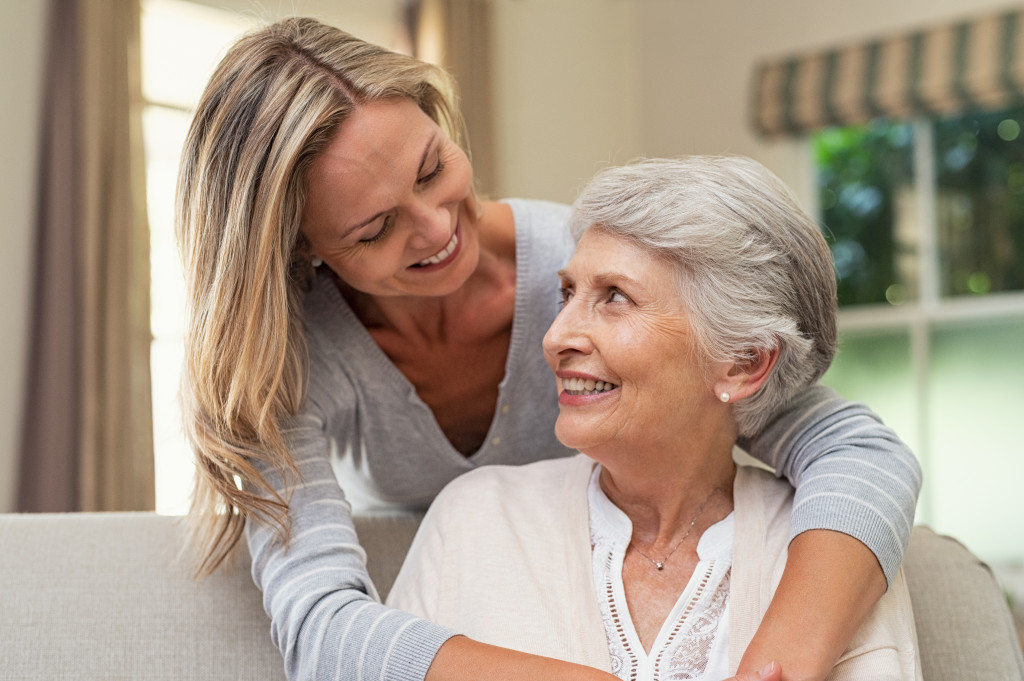- Remain informed of health care options, such as home health care, assisted living, skilled nursing facilities and hospice care.
- Make their home safe and accessible with safety equipment and keep it clutter-free.
- Help them stay physically active and encourage social engagement.
- Create a supportive living environment with calming aspects so that they feel comfortable.
Caring for elderly family members can be among the most rewarding and challenging experiences. As your loved ones age, they often require more assistance with everyday tasks such as meal preparation, medication management, bathing, dressing, and transportation to medical appointments. Sometimes it can feel overwhelming trying to provide the best care possible while managing other responsibilities. This guide gives five tips to help you provide the best care for your elderly family members and ensure they remain healthy and happy.
1. Stay Informed of their Health Care Options
It is essential to stay informed of the latest medical advances and treatments available for elderly care to ensure your loved one gets the best possible care. Researching medications, therapies, and other health services can help you understand the options and ensure they get the best possible treatment. It is important to stay current on insurance policies and benefits to ensure your loved one has access to the treatments they need.
Home Health Care
Home health care allows elderly individuals to remain home and receive care from licensed professionals. This can include medical assistance, physical therapy, occupational therapy, and other services tailored to the individual’s needs.
Assisted Living

Assisted living facilities provide a safe and secure environment for the elderly while they receive assistance with daily activities such as meals, bathing, dressing and other personal care services. In addition, many assisted living facilities offer medical assistance, recreational activities and social events for their residents.
Skilled Nursing Facilities
Skilled nursing facilities offer a higher level of healthcare for more complex medical issues. These facilities are staffed with experienced and qualified nursing staff, including doctors and nurses, who provide diagnoses, treatments, therapies and other services.
Hospice Care
Hospice care is often recommended when your loved one faces a terminal illness. It provides comprehensive palliative and end-of-life care focusing on comfort, compassion, and quality of life. Choosing reliable hospice care can help provide peace of mind to your family by offering physical, emotional, and spiritual support for the individual and their loved ones.
2. Make Their Home Safe and Accessible
It’s essential to ensure that the home of your elderly family is safe and adapted to their needs. Ensure there are no fall risks, such as loose carpets, poor lighting, and low furniture. Consider installing non-slip mats in bathrooms, grab bars in showers or tubs, and handrails on stairways. If your family member uses a mobility device, widen doorways and hallways. All of these changes can help reduce accidents or injuries.
3. Help Them Stay Physically Active

Physical activity is essential for elderly care. Encourage your loved one to get active by taking a stroll around the neighborhood or doing light exercises such as yoga or stretching. Research and sign them up for classes or activities they may enjoy, such as painting, gardening, or dancing. Be aware of any physical limitations that may affect their ability to stay active and provide them with appropriate assistance when needed.
4. Encourage Social Engagement
Elderly family members need to remain involved with their social circles. Regularly scheduled friendships, events, and activities can provide the stimulation and motivation that encourages independence. Ensure your loved one can keep in touch with friends and family by providing them with tools such as Skype, Facetime or email. Encourage them to join a club or go out with friends. Look into local senior centers that offer social activities and transportation services.
5. Create a Supportive Living Environment
Making your elderly family member’s home comfortable, safe, and welcoming can also help them to feel more secure and accepted. Consider what they may need as they age, such as grab bars in bathrooms and shower areas, non-slip mats, or lower shelves for easier access. Consider other safety measures, such as installing a security system or having an emergency call system. Take the time to review the home and identify any potential risks, taking steps to address them accordingly.
Making sure that the elderly family member’s home is free from any hazards or potential risks should be a priority when creating a supportive living environment. Be aware of the most common dangers associated with aging, such as poor vision, physical weakness or limitations, and memory problems.
In Closing
Caring for elderly family members can be a challenging and gratifying experience. Taking the time to stay informed of their health care options, making their home safe and accessible, helping them stay physically active, encouraging social engagement, and creating a supportive living environment are all important steps in providing quality care for aging loved ones. With these tips, you can ensure that your elderly family members are receiving the best possible care.




